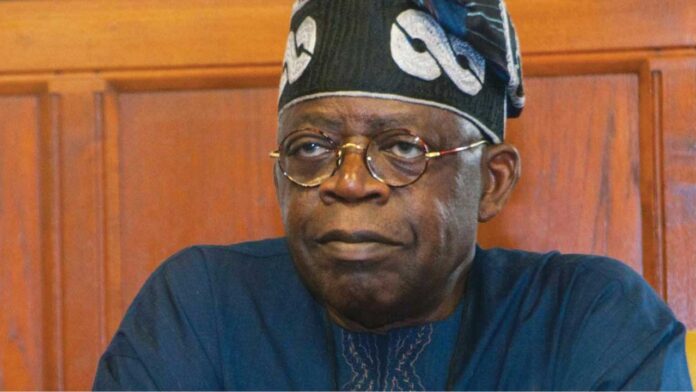It is time to restructure Nigeria, devolve power to States, NBA tells Tinubu
By Jude-Ken Ojinnaka
For the umpteenth time, Nigerians across the country have called for the restructuring of Nigeria and devolution of power to the States.
In continuation of the call, senior legal practitioners of the Nigerian Bar Association (NBA) have tasked President Bola Ahmed Tinubu to put machinery in motion to ensure the restructuring of Nigeria and devolution of power to States as widely demanded, while he remains in office as President of Federal Republic of Nigeria.
The senior lawyers of the Nigerian Bar Association (NBA) who made the call for restructuring are Mazi Afam Osigwe (SAN); the Chairman Egbe Amofin, Isiaka Olagunju (SAN); Dr Babatunde Ajibade (SAN); Chukwuka Ikwuazom (SAN) and Olusegun Fabunmi (SAN).
The Senior Advocates of Nigeria (SANs) expressed the need for restructuring when they spoke in Ikorodu at the 16th Chief Babatunde Olusola Benson (SAN) Annual Memorial lecture titled:
“The 1999 Constitution, Restructuring, and True Federalism; The Way Forward”, organized as part of the 2023 Law Week of the Ikorodu branch of the NBA which began on Wednesday June 7.
The theme of this year’s lecture is ‘2023 And Beyond: The Imperatives Of True Federalism In Nigeria’s Constitutional Democracy’.
While delivering the main lecture, Adam Osigwe (SAN) insisted that States should be allowed to have more authority over their affairs, expressing that the Federal Government of Nigeria should recognize the imperativeness of devolving more powers to the States.
According to Osigwe, “All parts of Nigeria must be made to understand that to prevent strife, civil disturbances, secession and preserve the union, restructuring is the most peaceful and least destabilizing way to keep the peace and build an enduring nation.
“The hope of the common man will continue to wane if we do not fix the country so that the people will enjoy the dividends of democracy. If we get our federal system properly fixed, everything will fall in place”.
Osigwe posited that the way to move forward is to agree on what needs to be removed the constitution and replace them with what is agreed upon which will enhance the workability of our federation. He added that there are 30 items on the concurrent list in which the federal and state governments can both act on.
In his words: “The 30 items in the concurrent list should be reviewed to transfer some items to the residual list. Items like industrial, commercial and agricultural development, health, and education should be exclusively reserved for the federating units, that is, States.
“Removing many items in the exclusive legislative list of 68 items, in respect of which only the Federal Government has legislative competence, and transferring the items to the states.
“Resource control should be decentralized to make Nigeria more productive, economically buoyant and less dependent on oil. States should be allowed to control the exploitation of resources found within their territory and pay taxes to the central/ federal government. The tax powers of each tier of government should be reversed in favour of States and local governments”.
The Silk Lawyer was of the view that the demand by some States to establish their state police forces should be considered. This, according to him, may entail removing the Nigeria Police Force (NPF) and policing from the exclusive list and putting the same in the concurrent list.
One of the discussants, Isiaka Olagunju (SAN) argued that restructuring and true federalism are critical to the development and stability of Nigeria’s constitutional democracy.
To achieve true federalism, Olagunju maintained that, “The constitution needs to be amended, the revenue allocation formula needs to be reviewed, and the political structure of the country needs to be restructured.
“A more decentralized system of government that devolves power and resources to the States and regions could help to address the challenges facing the country and promote greater participation and representation in federalism.
“There is the need to amend the 1999 Constitution to devolve more powers and resources to the States and regions”.
Olagunju equally agreed with the earlier speaker that the exclusive legislative list, which currently gives the FGN control over a wide range of areas, including education, health, and transportation, should be revisited to reverse the current trend.
The learned Silk further argued that a more equitable system of revenue allocation, which takes into account the resources and needs of each State, would help to reduce tensions and promote greater cooperation between the different regions and ethnic groups in Nigeria.
He contended that a restructured true federalism that is built on structures accepted by all States and people in various political zones is the solution to the challenges the country is facing presently.
Leaning on the problems the country is facing about true federalism as enumerated by Osigwe, another Senior Advocate, Dr Babatunde Ajibade suggested that the best thing is to turn the whole thing down and start all over again because Nigerians were never invited to participate when the constitution was drawn.
Dr Ajibade said, “Since 1999, we have had successive governments that have been put in place based on the legitimacy of that 1999 constitution.
“To a large extent, it is unrealistic to hope or to expect that they would dismantle the very instrument that gives them legitimacy.
“We are on the 5th amendment now. The good news is that we have exhibited the capacity to thinker with the constitution. While the ideal thing is for us to have a national constitutional conference, where all the constituent parts of the country would come together and renegotiate the way they want to relate with each other, I think what we need to do is to focus significant attention on the constitution amendment process.
“The 1st to 4th alteration to the constitution has to my mind been relatively self-serving in what they focused on. I think the challenge for us as a people, going forward, is that in this new dispensation, we need to engage with the new NASS as soon as it is constituted next week on the 13th, to ensure that our aspirations for our country are put forward and that our representatives take these aspirations seriously”.
On his part, Chukwuka Ikwuazom (SAN) who said no two federal states practice federalism in the same way, argued that under federalism, there is a basic minimum structure that must exist before a state can be regarded as practising federalism.
According to Ikwuazom (SAN), the basic minimum structure is that “We must have a political system in which there is power-sharing under a written constitution that shares power between a minimum of two levels of government. If that is lacking, we cannot call that political system a federation”.
Earlier in his opening remarks, the Chairman of NBA, Ikorodu branch, Kolawole Thany, suggested that unless lawyers take up the gauntlet to show direction, politicians would continue to fiddle with the principles of democracy, constitutionalism, and the rule of law, the lives of the citizens and resources of the nation.
He charged President Bola Ahmed Tinubu to change the narrative and steer the ship of the state in a positive direction.












